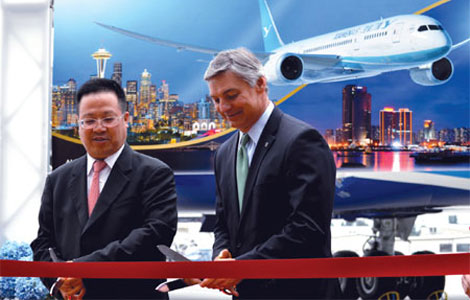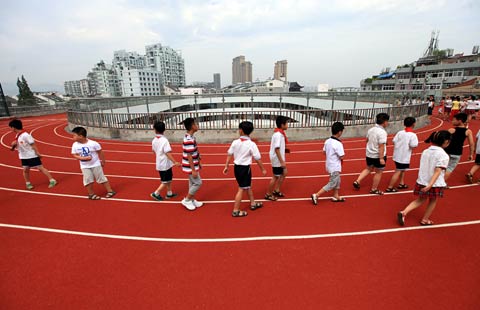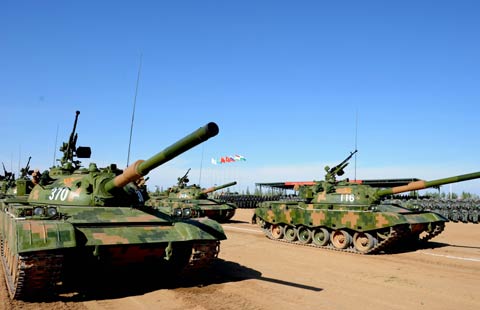China's role in WWII victory against Japan forgotten by West: British scholar
Updated: 2014-09-02 13:28
(Xinhua)
|
|||||||||
COLD WAR LEGACY
In the interview, Mitter attributed Western ignorance of China's role in WWII to the quick advent of the Cold War following the conflict.
"It became part of a much bigger struggle in the Cold War, so both in the West and in China, it was difficult to tell the story. For the West, China had gone from being a wartime ally to being part of the opposing bloc in the Cold War," he explained.
"During the Cold War, that made it very difficult, almost impossible for Americans and other Westerners to investigate and talk in an objective manner about what had happened in China during the war," the professor continued.
Moreover, he added, it was difficult to get the archives and the documents in China, and hard to meet Chinese historians and discuss the subjects with them at that time.
The Western amnesia has begun to change in recent years, with a number of scholars doing "really a lot of work" in trying to fit the Chinese story into the global story of WWII.
"Nowadays the situation has changed in very significant ways: historians go back and forth between each other's countries, and that means that now that the Cold War is over, we are able to achieve a much more nuanced and much more objective history of those wartime years," said the scholar, who can speak Mandarin fluently.
UNFINISHED BUSINESS
The historian noted that the Cold War rivalry has led to contrasting consequences in Europe and Asia in terms of dealing with WWII legacy.
Now it is "unthinkable" for the old enemies of Europe to have a really major dispute with each other because the former foes in WWII have reached a "universal comprehensive settlement," while in Asia the same sort of multilateral deal has failed to take place.
"I think that it is fair to say that 1945, the end year of WWII, is to this day unfinished business in Asia, in a way that's not true in Europe," he said.
Mitter analyzed that the way to avoid a bad lesson of history and learn a good lesson in WWII is "to look at Asia today and understand one very important thing: the ways that power is distributed anywhere in the world, including in Asia, is not zero sum."
"It's not the case that if one power becomes stronger, another one has to become weaker. That was the problems back in the 1930s and 1940s ... and that was one of the things that let the Japanese launch on their own imperialist adventures in the region," he warned.
"Nowadays we've come to realize that actually various powers and various countries can live consensually in a region, and in fact have to live in a region consensually with each other," he said.
He argued that the time is "ripe" for Asia to pick up the "unfinished business of 1945" and reach a "peaceful, comprehensive and consensual agreement" in the region.

 World's largest duty-free shop opens in China's Sanya
World's largest duty-free shop opens in China's Sanya
 Xiamen Air gets its first Dreamliner
Xiamen Air gets its first Dreamliner
 Running track built on school roof
Running track built on school roof
 Expressions on the first day of new school
Expressions on the first day of new school
 Tomatina joy in Northeast China
Tomatina joy in Northeast China
 Peace Mission - 2014 military drill ends in China's Inner Mongolia
Peace Mission - 2014 military drill ends in China's Inner Mongolia
 First steps on a journey of discovery
First steps on a journey of discovery
 Garbage dump turns water into poison
Garbage dump turns water into poison
Most Viewed
Editor's Picks

|

|

|

|

|

|
Today's Top News
Beijing spruces itself up for APEC summit
New Budget Law to change the game
Microsoft asked to explain monopoly accusations
China makes largest share of foreign students
Chinese American to run NYC public schools' fund
US launches fresh air strikes on IS rebels
NPC decision a landmark in HK democratic development
Chui Sai On elected Macao chief executive-designate
US Weekly

|

|








